|
Posted on 08/13/2003 12:00:15 AM PDT by SAMWolf
|
|
 are acknowledged, affirmed and commemorated.
|

| Our Mission: The FReeper Foxhole is dedicated to Veterans of our Nation's military forces and to others who are affected in their relationships with Veterans.
Where the Freeper Foxhole introduces a different veteran each Wednesday. The "ordinary" Soldier, Sailor, Airman or Marine who participated in the events in our Country's history. We hope to present events as seen through their eyes. To give you a glimpse into the life of those who sacrificed for all of us - Our Veterans.
|
|
ARMY OF THE POTOMAC COMMENCING MAY 4TH 1864 We were in winter quarters near Brandy Station, VA. Our Bugler sounded the revilee and long role which caused a comotion in camp knowing full well the time had arrived for the Army of the Potomac to start on the summer campaign.  The Wilderness Creating Org. War Department. U.S. Army. Office of the Chief Signal Officer. photographer, Mathew Brady Studio National Archives at College Park, We arose at 4 oclock, struck tents, packed our knapsacks, got our breakfast and fell into line. At 6 oclock in the morning we started south crossing the Rapidan river on a pontoon bridge. Marching all day. We encamped for the night in a pine woods. Marching about 15 miles. Was very tired & foot sore. Arose at daybreak, got our breakfast and fell into line, then resumed our march southward. Saw Gen. Grant for the first time. Marching very slow. Very warm. Fighting commenced at 11 oclock A.M. and continued all day untill after dark. Saw Gen. Burnside. He is here with 6,000 men. We captured 500 men to day. The picket firing lasted all night. Slept on the ground with my knapsack for a pillow and the canopy of heaven for a tent.  General Grant and staff on the road from the Wilderness to Spotsylvania Courthouse, Virginia May 7, 1864 Edwin Forbes (1839-1895) Graphite on paper The fighting commenced at daylight. The canons roared like thunder. Several charges were made but very little was accomplished on either side. Capt Billings of my own company, & Nicholas Beck, by old bunk mate were both killed by the same shell, and several more comrades belonging to Co F of our Regt. were killed & wounded. The Provose Guard were deployed as skirmishers in the rear of line of battle to take charge of the prisioners if any taken & to hold the straglers in check. Our lines were broken. The Rebels made a grand charge on the first Division of the Old 6th Corps & after a hard struggle our line was broken & driven back but the Provost Guard fixed bayonets & stoped every man. Our line was soon formed again and at dark the Old 6th Corps charged on the Rebels and drove them out of the breast works they had taken from us before l0 o'clock in the evening.  Arose at daylight, we had our breakfast about half cooked when the battle commenced. The rebels came out of the woods in 4 lines of battle, then Our artilery opened on them with Grape & Canister causing them to retreat in confusion & were glad to get out of sight. Very heavy fighting down the left of the line near Chancelorsville. It was reported we had captured between 4 & 5000 prizoners today. Heared good news about dark and Great Cheering prevailed the whol length of the line. We recd orders to be ready to move at dark. We marched 3 or 4 miles and halted untill 2 O clock in the morning by the side of the road. We slept with our knapsacks on our backs. Was aroused from our slumbers by a pack of mules running away. We sprung to our feet, grabbed our muskets & got ready for action. We considered it an attack from the rebels. In a moments time we were all quiet and down we laid until daybreak.  Lee at the Wilderness (1872) Lee at the Wilderness, McArdle's first battle painting, survives only in the form of a photograph. McArdle had served under General Robert E. Lee during the Civil War. In creating Lee at the Wilderness, McArdle honed the painstaking research skills he would use in the Texas paintings, interviewing and corresponding with many veterans of Hood's Texas Brigade and others involved in the battle. McArdle was heartbroken when Lee at the Wilderness, along with the first Dawn at the Alamo, was consumed in the 1881 Capitol fire Arose at daylight and marched about 8 miles very fast. Very warm today. We passed our ambulances loaded with our wounded comrades & saw lots of men laying by the road side that were wounded. Some with a leg off, some with an arm off, some a hand, some a foot. I tell you it was a hard sight to behold. We passed through Chancelersville and also through a dense pine forest. We saw lots of dead & wounded all along the roadside. Canonading in the morning but not much fighting today but at dark we made a charge on the Rebel Breastworks and drove them from their position. We cut them down dreadfully. The ground was covered with the dead and dieing. They laid like sheaves of wheat in a harvest field. Our men slept in the Breastworks & rifle pits they had captured.  Arose at daylight ate breakfast and got ready to march. Not much fighting today. A little canonading & skirmishing. Gen. Sedgwick our Corps Commander was killed near our Regiment by Rebel sharp shooters. Some of the boys would dodge when the balls passed their heads & the General said: "boys don't dodge. They could not hit an elephant." And in less than 5 minutes he was hit and soon died on the field. Gen. Morris of our brigade was wounded about the same time in the leg. The rebel sharp shooters were soon discovered up in a tree, 9 of them, when the officer in command called for a piece of artilery from the rifle batery and opened on them and the first shot cut the tree off about 40 feet from the ground & down came Mr. sharp shooter head first. That ended the sharp shooting at this time. It was very warm today. Some of the men were sun struck. The sick & wounded are being sent to Fredricksburg in amblulanees and general wagons. Had a brisk fight at dark of musketry & artilery.  All was quiet at daylight, except now & then a random shot was fired. Heavy skirmishing commenced at 6 Oclock A.M. This has been the hardest days fighting that has been done. Have fought al1 day and hard at it yet. Reported that Gen Butler had taken Petersburg & was advancing on Richmond. We see hundreds of wounded by the sides of the road and the wounded in the ambulances are screeching as they are moved off the field. But we don't mind it. We are so tired & worn out by marching & fighting & being without sleep. We don't care for any one but ourselves. We don't realize the horrors of war. Our men made a charge at dark & captured about l000 rebels. So ended this days fighting.
|
Wow.
Good read SAM, thanks.
I've seen some of the battlefields in Virginia and the thickness of the woods. Add the Southern heat and humidity to that and the fighting conditions for both sides must have been horrible.
It's good we have some of these diaries to learn from.


How are ya?


SIXTH CORPS CROSSING THE RAPIDAN TO GO INTO THE BATTLE OF THE WILDERNESS

Portrait of Lieut. Gen. James Longstreet, Officer of the Confederate Army,
Brady National Photographic Art Gallery,
between 1860 and 1865.
I never on any occasion during the four years of the war saw a group of officers and gentlemen more deeply distressed. They were literally bowed down with grief . . . It was not alone the general they admired who had been shot down--it was, rather, the man they loved.
Robert Stiles, an artillery officer, on the wounding of General James Longstreet.
Robert Stiles, Four Years Under Marse Robert (Dayton, Ohio: Morningside Bookshop, 1977 reprint of the 1903 edition published by Neale Publishing Co.), page 247.
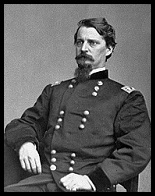
General Winfield S. Hancock
Union Second Corps
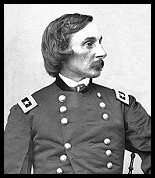
General Gouverneur K. Warren
Union Fifth Corps
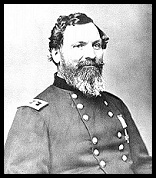
General John Sedgwick
Union Sixth Corps
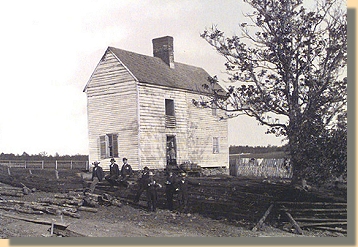
Wilderness Tavern - 1884
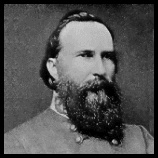
General James Longstreet
Confederate First Corps
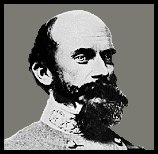
General Richard S. Ewell
Confederate Second Corps
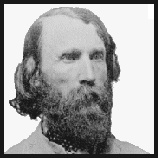
General Ambrose P. Hill
Confederate Third Corps
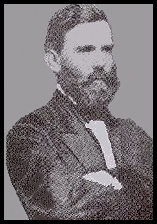
General George W. Getty
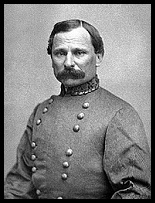
General Cadmus M. Wilcox
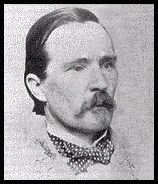
General Henry Heth
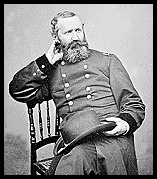
General Alexander Hays
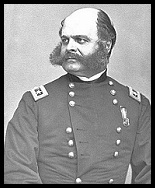
General Ambrose E. Burnside
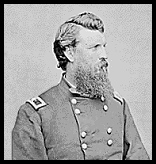
General John Gregg
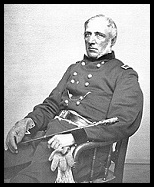
General James S. Wadsworth
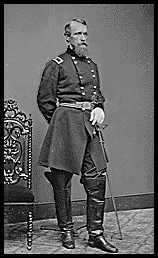
General David B. Birney
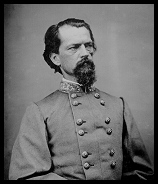
General John B. Gordon
Two nights ago on The History Channel the fellow was showing five young men how to load and fire the muzzle-loader.
He drilled them by the numbers and they had their chance to get off three shots in one minute, which they did, just.
I wondered at the time what effect having the large lead slugs flying at and through you and your mates would have.
I have one of these Minie Balls here to turn over in my hand.
I would enjoy sending three of these a minute at the current crop of mediots critical of Operation Iraqi Freedom.
It would have a tonic effect which would command an immediate national market.
An entirely new definition of imbedding journalists.
Disclaimer: Opinions posted on Free Republic are those of the individual posters and do not necessarily represent the opinion of Free Republic or its management. All materials posted herein are protected by copyright law and the exemption for fair use of copyrighted works.